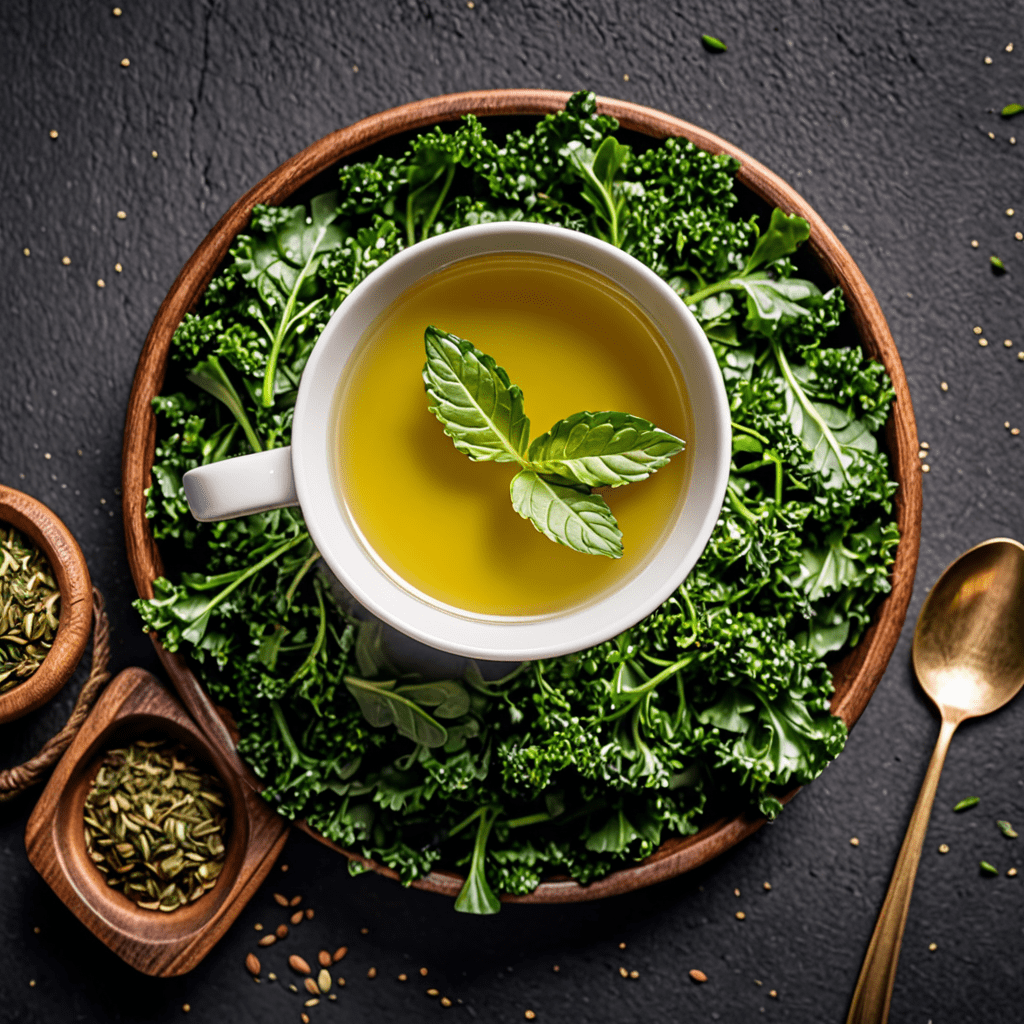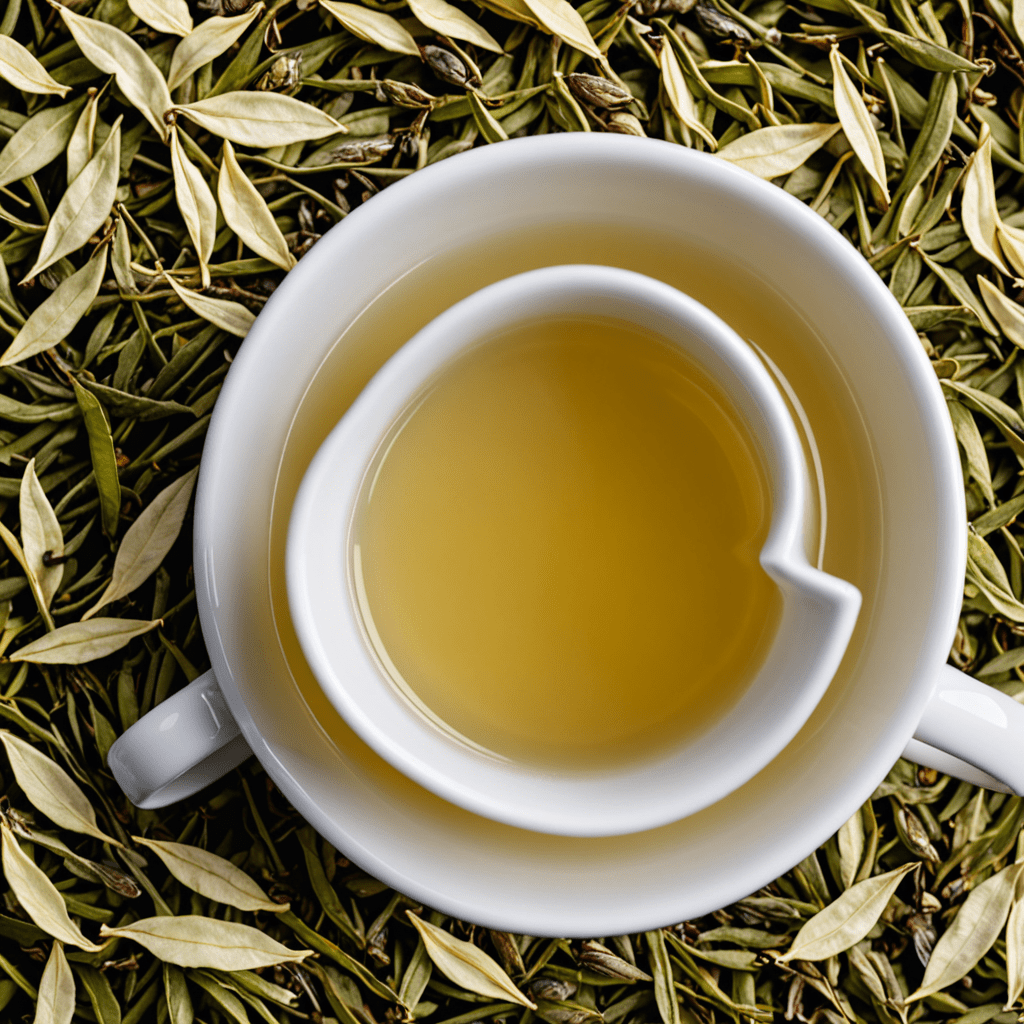How Much Theanine is in Green Tea: Exploring the Benefits and Dosage

Green tea is known for its numerous health benefits, from boosting metabolism to providing a calming effect. One of the key components that contribute to these benefits is the amino acid known as theanine. In this article, we will explore the amount of theanine found in green tea, its potential benefits, and the recommended dosage.
Theanine: A Natural Component of Green Tea
Theanine, also known as L-theanine, is a unique amino acid commonly found in green tea. It is responsible for providing the tea with its characteristic umami taste, as well as its calming effects on the mind and body. Theanine is naturally found in the leaves of the Camellia sinensis plant, the source of all true teas, including green tea.
The Amount of Theanine in Green Tea
The exact amount of theanine in green tea can vary depending on several factors, including the tea variety, the way it is processed, and the brewing method. On average, green tea contains approximately 20 to 45 milligrams of theanine per 8-ounce cup. However, these values are estimates and can vary.
Potential Health Benefits of Theanine
Theanine offers several potential health benefits when consumed as part of green tea. Let’s take a look at some of the notable advantages:
1. Relaxation and Stress Relief
Research suggests that theanine can promote relaxation and reduce stress by increasing the production of alpha brainwaves. These brainwaves are associated with a state of calm and relaxation, making theanine a popular choice for individuals looking to manage stress.
2. Improved Focus and Mental Clarity
Theanine is believed to enhance cognitive function by increasing dopamine and serotonin levels in the brain. This can lead to improved focus, attention, and mental clarity, making it a valuable tool for those seeking to boost productivity or mental performance.
3. Enhanced Sleep Quality
Consuming theanine has been found to improve sleep quality by promoting relaxation and reducing anxiety levels. It can help regulate sleep cycles and contribute to a restful night’s sleep, making it a natural aid for individuals struggling with insomnia or other sleep disorders.
4. Antioxidant and Anti-inflammatory Properties
Theanine possesses antioxidant and anti-inflammatory properties, which can help protect the body against oxidative stress and inflammation. This can have a positive impact on overall health and may contribute to a reduced risk of chronic diseases.
Recommended Theanine Dosage
There is currently no official recommended dosage for theanine, as research on this specific amino acid is still ongoing. However, based on available studies and user experiences, a typical dosage range for theanine in green tea is around 100 to 200 milligrams per day.
It’s worth noting that consuming higher doses of theanine does not necessarily lead to greater benefits. As with any supplement, it is important to consult with a healthcare professional to determine the appropriate dosage for your specific needs and any potential interactions with existing medications.
FAQ: Frequently Asked Questions
Q: Can I consume theanine supplements instead of drinking green tea?
A: While theanine supplements are available, it is generally recommended to consume theanine in its natural form as part of green tea. Drinking green tea provides a balanced combination of theanine and other beneficial compounds, contributing to its overall health benefits.
Q: How can I enhance the theanine content in my green tea?
A: To maximize the theanine content in your green tea, it is recommended to use loose leaf tea instead of tea bags, brew the tea at a lower temperature (around 175°F), and extend the brewing time to 2-3 minutes. These methods can help extract more theanine from the tea leaves.
Q: Are there any side effects associated with theanine consumption?
A: Theanine is generally considered safe for most individuals when consumed in moderate amounts. However, some individuals may experience mild side effects such as headaches, dizziness, or gastrointestinal discomfort. It is advisable to start with a lower dosage and gradually increase as tolerated.
Q: Can I drink green tea with other medications?
A: Green tea, including the theanine it contains, may interact with certain medications. It is important to consult with a healthcare professional to ensure there are no potential drug interactions before adding green tea or theanine supplements to your daily routine.
In conclusion, green tea is a natural source of theanine, an amino acid that offers several potential health benefits. While the exact amount of theanine in green tea can vary, consuming a few cups per day can provide a beneficial dosage. As with any dietary supplement, it is important to consume theanine in moderation and consult with a healthcare professional for personalized advice. So go ahead, brew yourself a cup of green tea and enjoy the calming benefits of theanine!



